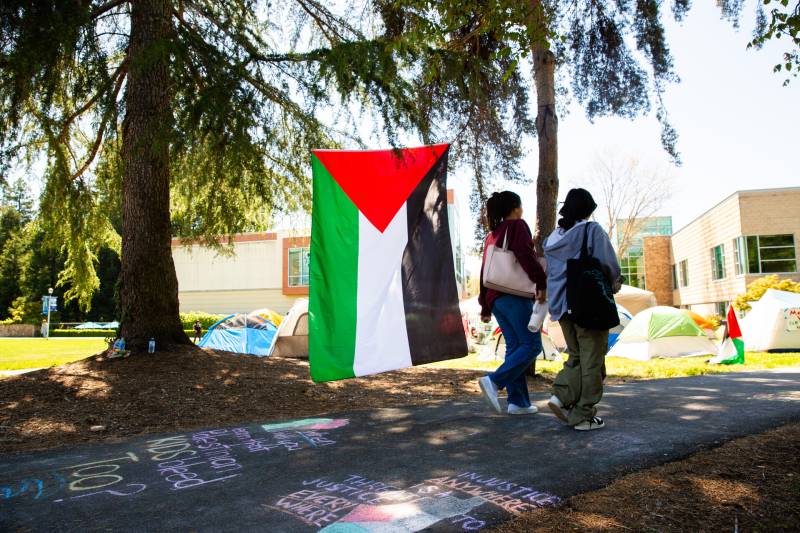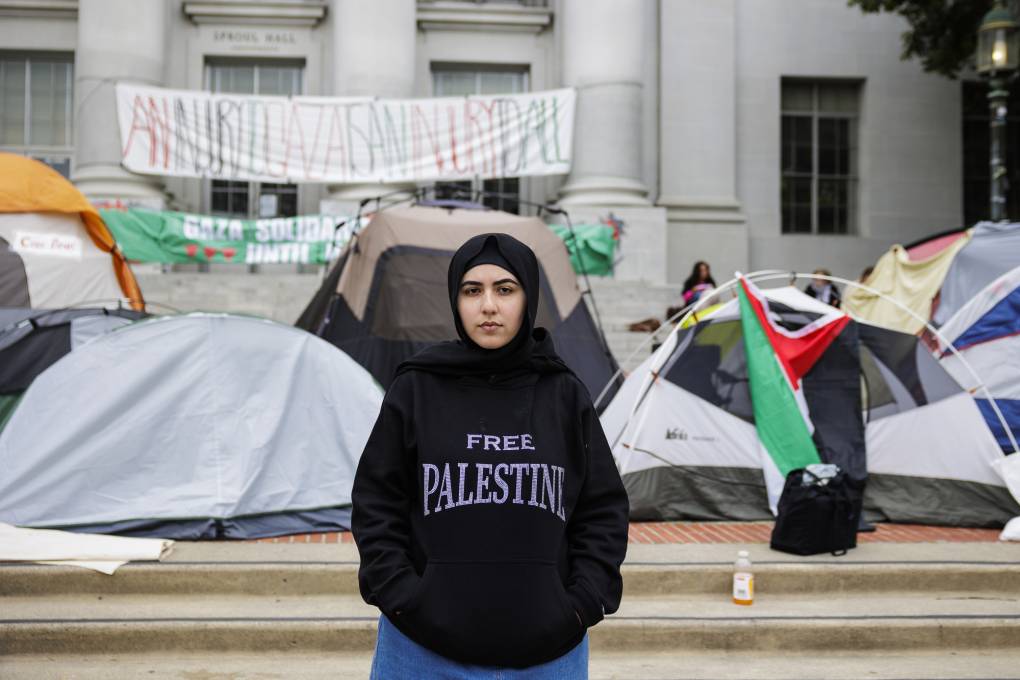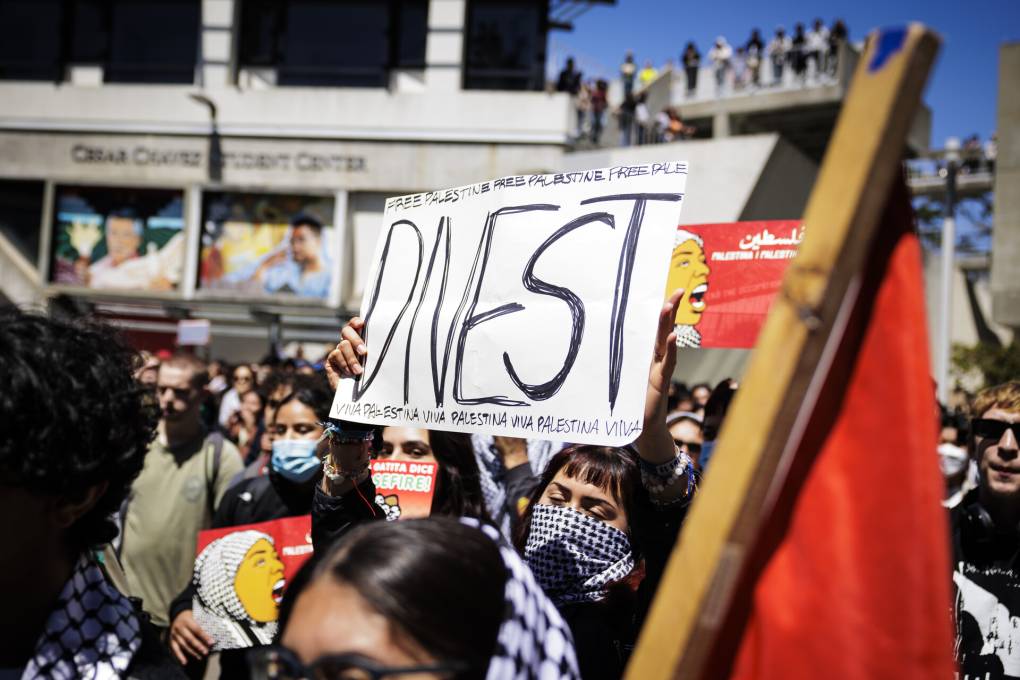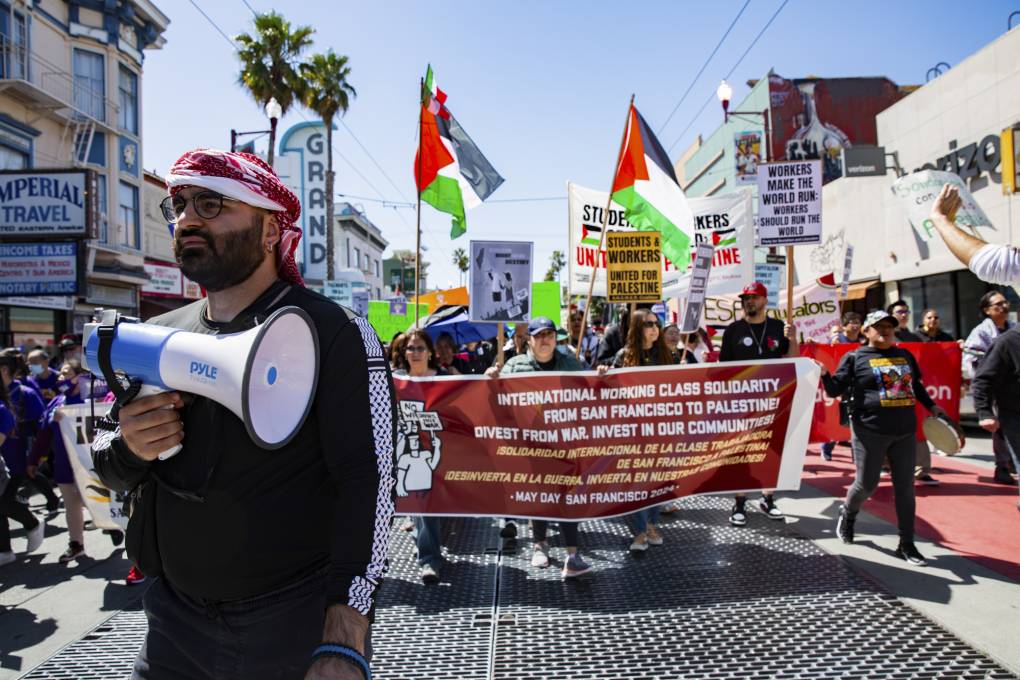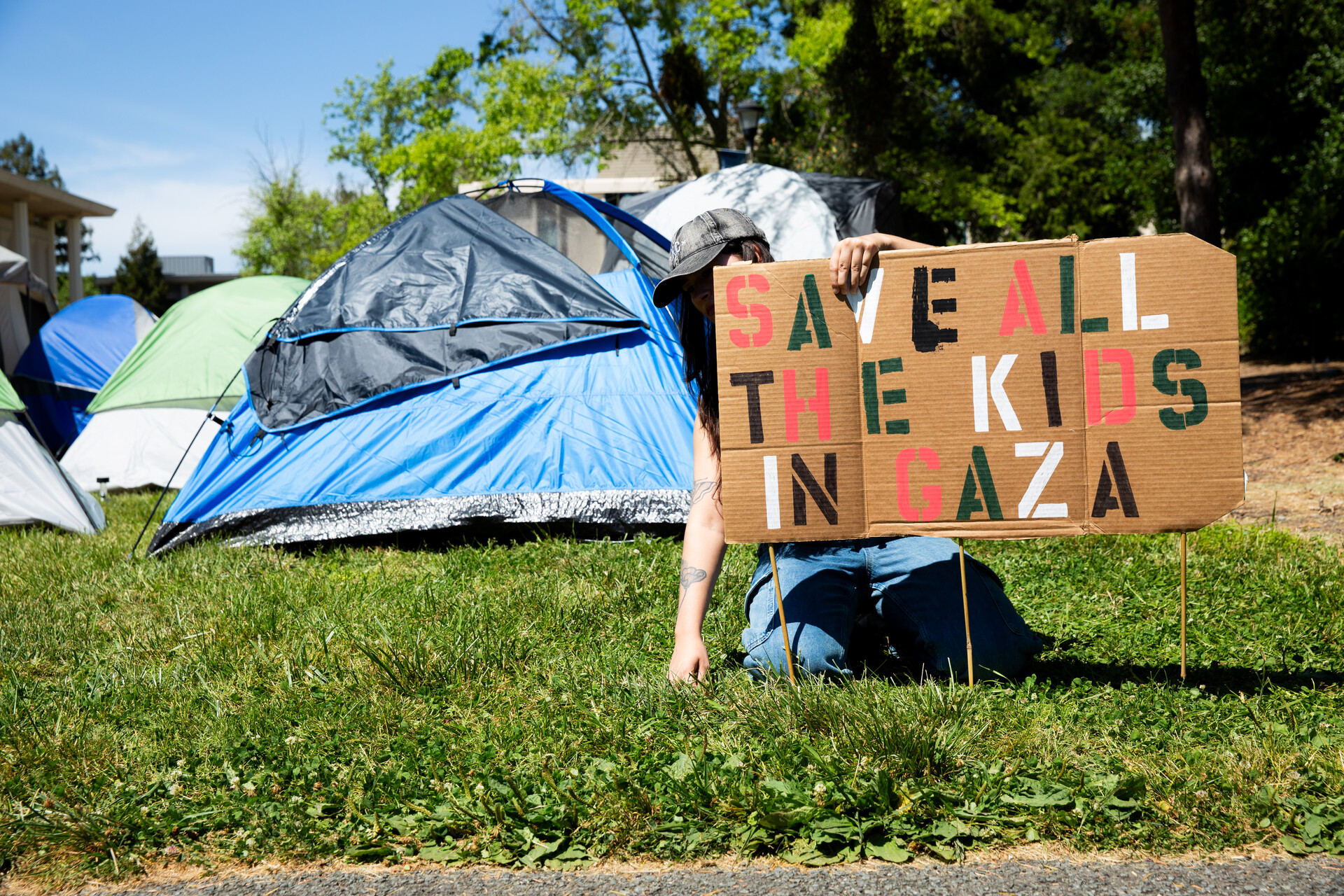Updated 8:20 a.m. Friday
A deal reached between Sonoma State University and pro-Palestinian student protesters is in limbo after the campus president was placed on administrative leave over his letter announcing the agreement, then retired.
In his Tuesday letter, President Mike Lee agreed to disclose where the university foundation invests its money and to review all investments and vendor contracts for possible areas of divestment – concessions in line with deals also reached this week at San Francisco State University and UC Berkeley, reflecting two of the largest demands made by student protesters across the country.
However, Lee went further, agreeing not to pursue formal collaborations with Israeli state-affiliated academic and research institutions, including study abroad programs or faculty exchanges.
“Both SSU Students for Justice in Palestine and I, President Mike Lee, oppose and condemn all acts of genocide, ethnic cleansing, racism, antisemitism and other activities that violate fundamental human rights,” Lee wrote later in the letter. “And thus, I call for a cease-fire so that a process for permanent, peaceful resolution can be established.”
